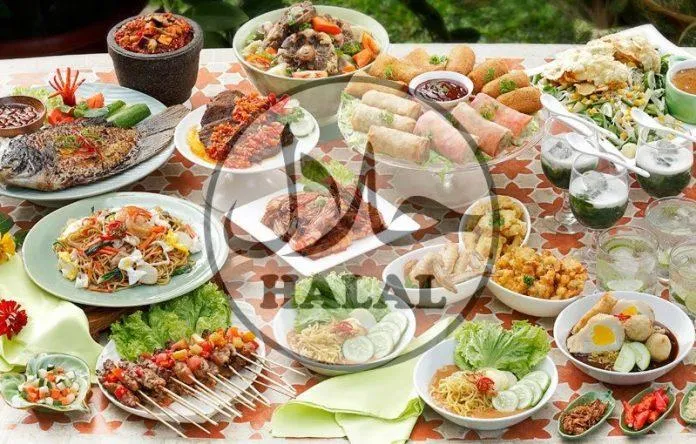
Halal Certification (PS 3733): Ensuring Compliance for Pakistani Businesses
Halal Certification (PS 3733): Ensuring Compliance for Pakistani Businesses
Introduction
In a globalized marketplace, where consumer preferences and dietary restrictions are increasingly diverse, halal certification has emerged as a crucial factor for businesses operating in Pakistan and targeting Muslim consumers worldwide. The Pakistan Standard (PS) 3733 outlines the requirements for a Halal Food Management System, providing a framework for ensuring that products and services adhere to Islamic dietary laws. This article explores the importance of halal certification, the benefits it offers, and the role of certification bodies like Gitchia Institute of Global Certification in supporting Pakistani businesses.
Understanding Halal Certification
Halal certification is a formal process that verifies that products, services, or processes comply with Islamic dietary laws. It encompasses a wide range of aspects, including food production, personal care products, pharmaceuticals, and financial services. In Pakistan, PS 3733 serves as the primary standard for halal certification, ensuring consistency and reliability.
The Significance of Halal Certification in Pakistan
Pakistan, with its predominantly Muslim population, presents a vast market for halal products and services. Obtaining halal certification offers numerous advantages for Pakistani businesses:
Market Expansion: Halal certification opens doors to both domestic and international markets, especially in Muslim-majority countries where halal products enjoy high demand.
Consumer Trust: Consumers increasingly seek products that align with their religious beliefs. Halal certification builds trust and loyalty among Muslim consumers.
Brand Reputation: It enhances the brand image and reputation of businesses, positioning them as reliable and trustworthy providers of halal products and services.
Economic Growth: The halal industry contributes significantly to the global economy. By obtaining halal certification, Pakistani businesses can tap into this lucrative market and contribute to economic growth.
Export Opportunities: Halal certification is essential for exporting products to countries with substantial Muslim populations, such as the Middle East, Southeast Asia, and Africa.
The Halal Certification Process
The halal certification process typically involves the following steps:
Pre-assessment: A preliminary assessment is conducted to evaluate a business's compliance with halal requirements and identify areas for improvement.
Documentation: The business develops and implements a Halal Food Management System (HFMS) according to PS 3733 standards, documenting procedures and controls.
Certification Body Selection: A reputable halal certification body, such as Gitchia Institute of Global Certification, is selected to conduct the certification audit.
Audit: The certification body conducts a thorough audit to assess the business's compliance with halal standards and the HFMS.
Certification: Upon successful completion of the audit, the certification body issues a halal certificate.
Surveillance and Re-certification: Regular surveillance audits and re-certification are required to maintain halal certification.
The Role of Gitchia Institute of Global Certification
Gitchia Institute of Global Certification plays a vital role in supporting Pakistani businesses in their pursuit of halal certification. With its expertise in halal standards and a deep understanding of the local market, Gitchia offers comprehensive services, including:
Gap analysis to identify compliance gaps
HFMS development and implementation support
Halal training and awareness programs
Certification audits and surveillance audits
Ongoing support and guidance
By partnering with Gitchia, Pakistani businesses can streamline the certification process and increase their chances of achieving halal certification successfully.
Challenges in Obtaining Halal Certification
While halal certification offers numerous benefits, it can also present challenges for businesses:
Cost and Resources: Implementing a HFMS and obtaining certification requires financial investment and dedicated resources.
Supply Chain Management: Ensuring halal compliance throughout the supply chain can be complex and time-consuming.
Knowledge and Expertise: Businesses may lack the necessary knowledge and expertise to develop and implement a robust HFMS.
Overcoming Challenges and Ensuring Halal Compliance
To overcome these challenges, Pakistani businesses can:
Seek Expert Guidance: Partnering with a reputable certification body like Gitchia Institute of Global Certification can provide valuable support and expertise.
Start Small: Begin by focusing on high-risk areas and gradually expand the HFMS implementation.
Employee Training: Invest in training employees about halal requirements and their roles in maintaining halal compliance.
Supplier Assessment: Conduct thorough assessments of suppliers to ensure their adherence to halal standards.
Conclusion
Halal certification is essential for Pakistani businesses seeking to tap into the growing global halal market. By complying with PS 3733 and obtaining halal certification, businesses can enhance their brand reputation, expand their customer base, and contribute to the economic growth of the country. With the support of reputable certification bodies like Gitchia Institute of Global Certification, Pakistani businesses can successfully navigate the halal certification process and reap its rewards.
